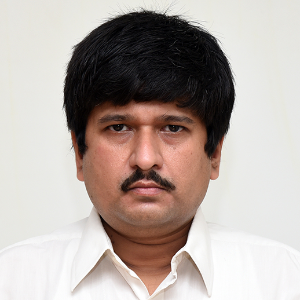Abstract:
Chronic Obstructive Pulmonary Disease (COPD) and Lung cancer are the major reasons for lung disease related mortality worldwide. Chronic inflammation is a key attribute of COPD and a potential driver of lung carcinogenesis. Among various environmental risk factors, cigarette smoke plays a crucial role in the development and progression of COPD and lung cancer. Several epidemiological studies show that COPD patients are at a greater risk of developing lung cancer independently of cigarette smoking which suggests the role of genetic predisposition in the disease development. Uncovering the mechanistic link between these two diseases is hampered due to their heterogeneous nature: each is characterized by several sub- phenotypes of diseases. Our laboratory is mainly focused to study the specific epigenetic mechanism that occur in both COPD and lung cancer. The purpose of the current study is to uncover the link between alterations in inflammatory cytokine levels and disease progression in CD4+T cells of patients suffering from COPD and lung cancer. We also investigated the epigenetic regulation of mitochondrial Transcriptional Factor A (mtTFA) to delineate the role of oxidative stress-mediated inflammation in Lung cancer and COPD. The RT2 Profiler PCR array was used to examine the differential expression pattern of inflammatory genes in CD4+ T helper (Th) cells from COPD, NSCLC, and control subjects. Candidate inflammatory gene loci were selected and the enrichment of transcriptional factor and histone modifiers was analysed using ChIP-qPCR. In comparison to control subjects, a set of genes (e.g., BMP2, CCL2, IL5, VEGFA, etc.) are over-expressed whereas another set of genes (e.g., AIMP1, IFNG, LTA, LTB, TNF, etc.) are under-expressed in both COPD and NSCLC patients. The increased percentage enrichment of inflammation-associated transcription factors including NF- kB, CREB, HIF1 , and MYC at the loci of inflmmatory genes was revealed by our chromatin immunoprecipitation (ChIP) data. H3K4me3, H3K9me3, H3K14Ac, HDAC1, 2, 3, 6 all showed dysregulated enrichment at the VEGFA gene locus. One of the epigenetic modifications, histone methylation, was found to be abnormal in the mtTFA complex in COPD and NSCLC patients in comparison to controls. Although there is mounting evidence of several links between these disorders, therapeutic options remain inadequate. Our findings contribute to the body of knowledge about therapeutic techniques that use inflammatory cytokines as a prognostic marker and highlight the need for epigenetic therapy for these debilitating lung diseases.
Audience Take Away Notes:
- Audience will learn that COPD patients are at a greater risk of developing lung cancer
- Mechanistic link between COPD and lung cancer will help the researcher to develop different types of immunotherapeutic strategies for lung disease
- Our research will help the other researchers to study the specific epigenetic mechanism(s) that occur in two interconnected diseases
- Our findings contribute to the body of knowledge about therapeutic techniques that use inflammatory cytokines as a prognostic marker and highlight the need for epigenetic therapy for the debilitating lung diseases
- Our study will definitely improve to find out several links between the lung disorders to develop different immunotherapeutic strategies to combat those diseases




